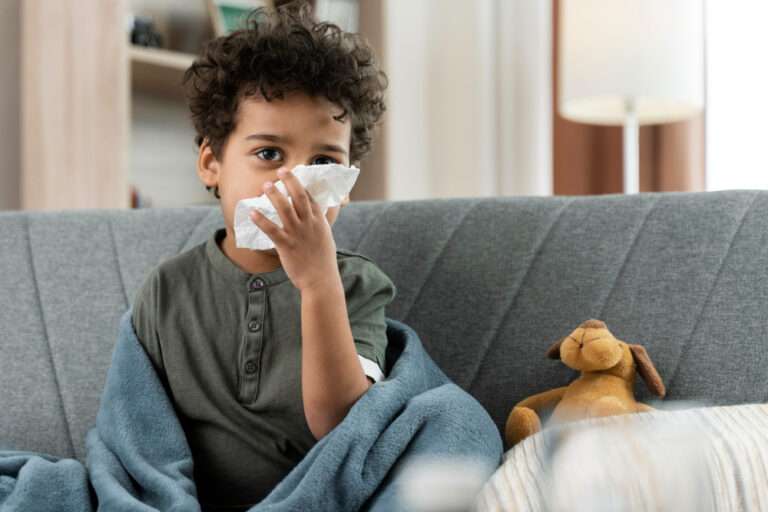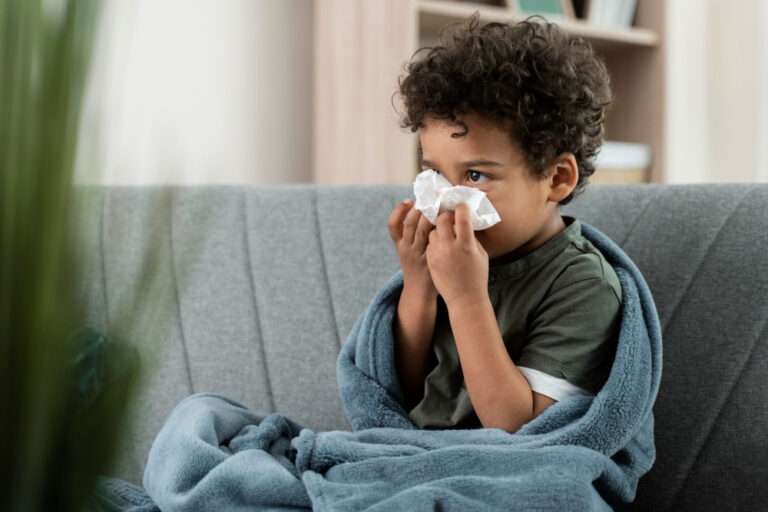Influenza (flu) in children
Influenza, commonly referred to as the flu, can affect children of all ages. It is a contagious respiratory illness caused by influenza viruses. Influenza in children presents specific challenges due to their developing immune systems and close contact with peers in school and daycare settings. Here’s what you need to know about influenza in children:
Symptoms:
- Influenza symptoms in children are similar to those in adults and can include:
- High fever.
- Cough.
- Sore throat.
- Runny or stuffy nose.
- Headache.
- Muscle aches.
- Fatigue.
- Vomiting and diarrhea (more common in young children).
Complications:
- Children, especially those under the age of 5, are more vulnerable to complications from the flu. Common complications include ear infections, sinus infections, and pneumonia.
- Children with certain underlying health conditions, such as asthma, diabetes, or weakened immune systems, are at higher risk of severe flu-related complications.
Vaccination:
- Annual flu vaccination is recommended for all children aged 6 months and older. The vaccine helps protect against the flu and its complications.
- Children under 9 years old receiving the flu vaccine for the first time may require two doses spaced at least four weeks apart.
Antiviral Medications:
- If a child becomes infected with the flu, antiviral medications (such as oseltamivir, zanamivir, or baloxavir) prescribed by a healthcare provider can help reduce the severity and duration of symptoms if administered early in the illness.
Prevention:
- Besides vaccination, practicing good hygiene can help prevent the spread of the flu. Encourage children to:
- Wash their hands frequently with soap and water.
- Cover their nose and mouth with a tissue or their elbow when coughing or sneezing.
- Avoid close contact with sick individuals.
- Stay home when they are sick to prevent spreading the virus to others.
School and Daycare:
- Children with the flu should stay home from school or daycare until they are fever-free for at least 24 hours without the use of fever-reducing medications.
Rapid Testing:
- Rapid influenza diagnostic tests can quickly identify if a child has the flu. Early diagnosis can aid in proper treatment and isolation to prevent the spread of the virus.
Quarantine and Isolation:
- Children with the flu should be kept away from others, especially infants, the elderly, and those with underlying health conditions, to prevent transmission.
Influenza is a contagious respiratory illness that can affect children with varying degrees of severity. Vaccination and good hygiene practices are key to preventing the flu in children and reducing its impact. If a child develops symptoms of the flu, especially if they have underlying health conditions, seeking medical advice is important for appropriate management and to prevent complications.
Remedies



------------From our Sponsors------------









